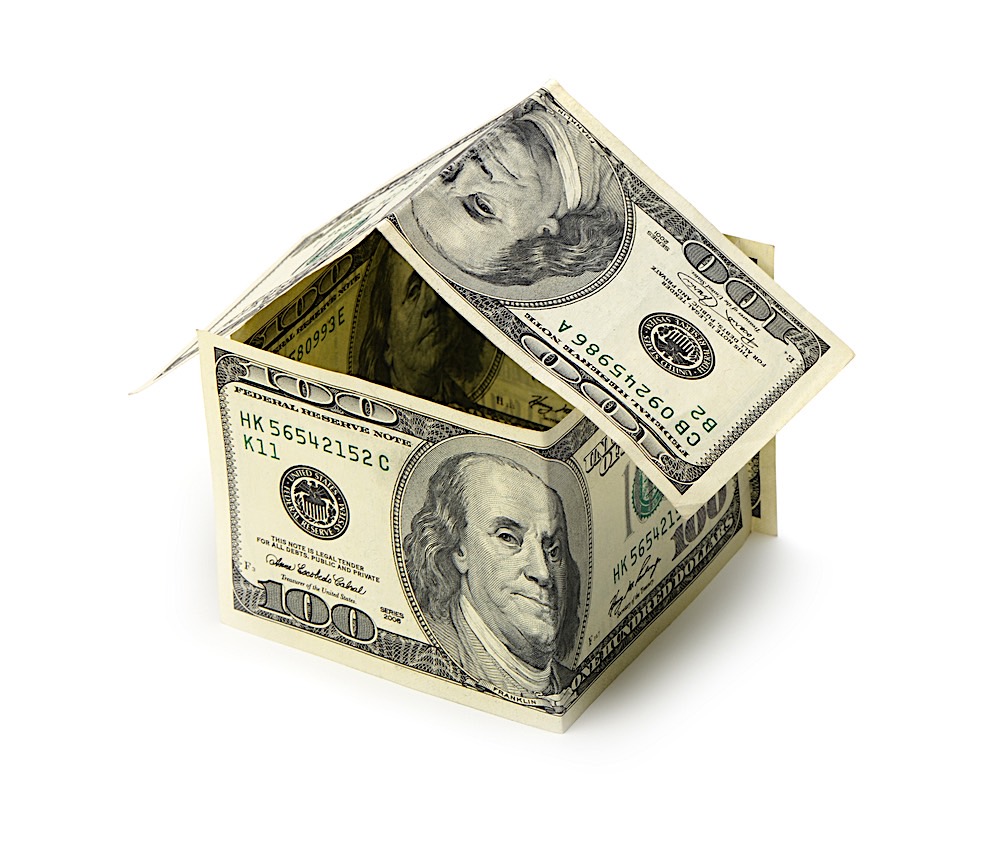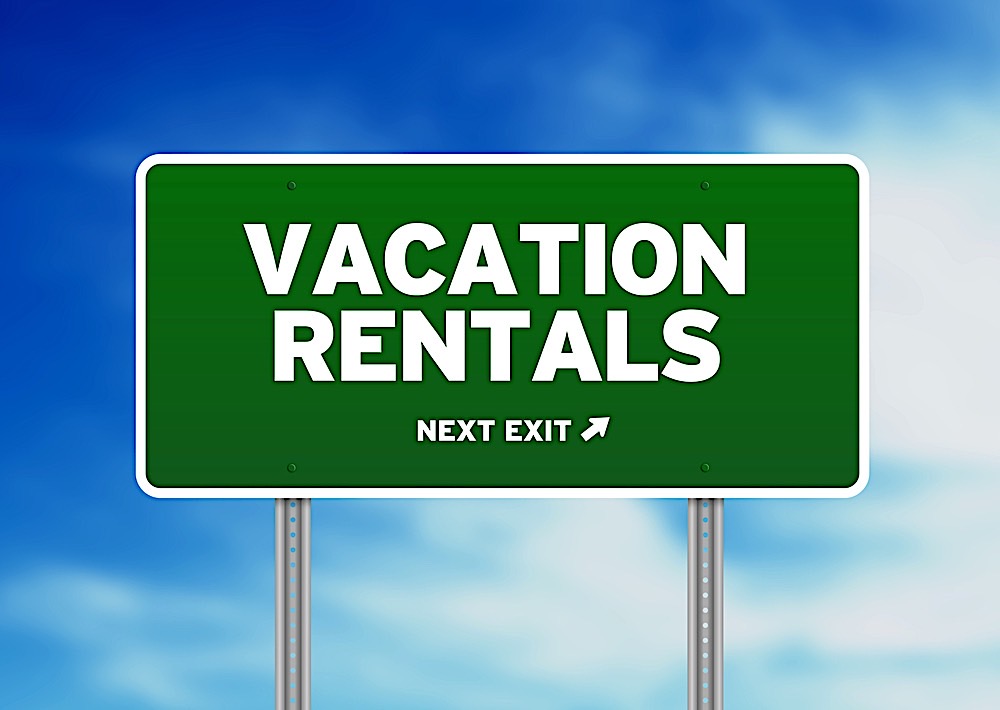Key Takeaways
How does real estate make money? |Increasing property value |Regular income | Residential real estate income | Alternative real estate income | How to make money as a beginner |
There is a lot of money to be made in real estate — which is why it’s popular with a variety of investors. Whether you are trying to build passive income or kick off a full-time investing career, there are numerous ways to find success.
However, this all begs the question: what exactly are the best ways to make money in real estate? Is making money in real estate as complicated as it sounds?
Let’s review how to make money in real estate first, and identify the best strategies for investors ready to get started.
[ Thinking about investing in real estate? Register to attend a FREE online real estate class and learn how to get started investing in real estate. ]

How Does Real Estate Make Money?
There are generally four different ways to make money in real estate:
-
Increase a property’s value
-
Generate regular income through a property
-
Buy and hold residential real estate
-
Participate in investments that don’t require you to buy property
Before you get started, consider a few different things:
-
Your Risk Tolerance: All investments carry some degree of risk. In the real estate world, you’ll find investments that carry less risk and investments that carry lots of risk. How much risk are you willing to take on?
-
Your Local Housing Market: Some investments may require that you live in or nearby a housing market with ample real estate opportunities. If you don’t live by one of these dynamic markets, you may have to seek investments that don’t require you to buy property.
-
Liquidity: Most real estate investments are not “liquid.” In other words, if your personal finances take a plunge and you desperately need money, you may not be able to sell a property quickly or for a reasonable price. Certain real estate investments (mainly those that require you to buy property) may not be suitable for investors who don’t have stable finances.
-
Capital: How much money do you have to invest? Some investments require a huge amount of capital, while others do not.
-
Know-How: How knowledgeable are you about the real estate market? Have you received real estate training or not? With more education, you’ll be able to take on more types of investments.
-
Time-Commitment: How much time are you willing to put into your investments? Are you trying to create a passive income or launch a real estate career? You’ll find that some investments can be made part-time, while others require your constant attention.
By answering the questions above, you’ll have a better idea of which types of real estate investments are suitable for you.
1. Increasing Property Value
The most common way to make money in real estate is through appreciation. Appreciation is when a property grows in value.
You might purchase a property for $400,000, and over the course of 10 years, it appreciates to a value of $500,000. Sell the property, and you’ll have profited $100,000.
Most properties tend to appreciate, and that’s why real estate is such a popular industry for investors. There’s an excellent chance that your property will eventually be worth more than what you bought it for.
Let’s talk about land first. “Land” is any property that has few or no existing structures. Land tends to appreciate for two reasons:
-
Development: Land may appreciate if you construct a house or commercial building. Or you could refurbish structures that are already on the land.
-
Natural Resources: If you discover gold or oil on your land, it will almost certainly skyrocket in value. You can also sell land rights to companies that wish to harvest resources off your land—typically, you can earn a percentage of whichever resources are collected.
Residential and commercial properties appreciate for three main reasons:
-
Location: This is the main reason residential properties appreciate. Properties are more likely to grow in value if they’re located by schools, commercial centers, scenic areas, or popular destinations.
-
Development: A property will appreciate if the surrounding neighborhood sees new developments or redevelopment (but a property may also decline in value if the neighborhood decays).
-
Improvements: A property may appreciate if significant building improvements are made. This is the main idea behind fix-and-flip investing.
Inflation in Property Value
Don’t forget to account for inflation—how prices increase over time. Inflation will cause your property to be a little less profitable than what you’re selling it for.
For example, your property may have appreciated by $200,000, but the average home price may have increased by $70,000 over the same period.
Keep this in mind when you’re trying to calculate your returns on a prospective property.
2. Regular Income
You’ll earn a one-time profit when you sell an appreciated property. But many real estate investors use their investment properties to generate a steady cash flow. You can generate regular income through residential properties, commercial properties, and raw land.
When you own a residential property, you can rent out to tenants and collect monthly rent. You need to collect enough rent to cover the property costs, like mortgage payments, utilities, and property taxes—and you might even be able to collect a little extra that you can pocket.
Similarly, you can rent out commercial properties to businesses. With commercial properties, you could make additional money by offering your tenants contractual obligations. “First right of refusal” is a popular one: when a business rents out space on your property, they can pay you to grant them a first-option on an office space that opens up next door. This is a helpful contract for growing businesses, and it’s a good way for you to avoid prolonged vacancies.
With residential and commercial properties, you need to strike the right balance between price and desirability. You need to charge rent that’s high enough to cover your expenses and turn a profit, but the rent needs to be reasonably proportionate to the property’s quality. If your rent is too low, you could lose money. And if your rent is too high, you could suffer from extended vacancies—which are even more costly.
You can generate regular income from raw land, too. They can rent out your land to harvest resources, in which case they’ll pay you royalties on their profits. A business can rent out land for production purposes—most rented land is used for agriculture.
Like residential and commercial properties, you need to make sure that your raw land generates enough rent/royalties to cover your expenses and turn a profit.

3. Residential Real Estate Income
Residential properties offer a variety of ways to make money. Whether you want to generate monthly income or one-time revenue, different options can suit your needs. The best residential strategy often depends on your preferred level of involvement — though they all require a certain level of research to be successful. Here are just a few different ways to break into residential real estate:
Buy and Hold
“Buy and hold” is the most popular investment strategy for residential real estate. As mentioned in the previous sections, you can buy a property and hold it until it appreciates, or you could rent it out to tenants.
You don’t have to own a separate property to buy and hold, either. You can use this investment strategy to make money at your primary residence. You can rent out rooms in your house (a great way to collect extra money for the mortgage payment), or if you own a multi-family home, you can live in one unit and rent out the others.
When you rent out a property to tenants, you’ll become the de-facto landlord of the property. You’ll have several landlord obligations to fulfill, including hiring contractors to do maintenance tasks when needed (you’re the one who’s got to hire the plumber). If you fail to perform those obligations on time, your tenants—in most states—are legally entitled to withhold rent payments.
If you’re only trying to develop a passive income, you might opt to hire a property management company to manage your properties. Most property management companies will charge between 8-10% of your monthly rental income, but they’re a godsend for investors who are too busy to handle landlord duties or screen new tenants.
Fix-and-Flip
“House flipping” has become one of the most exciting types of real estate investments—hence the large number of TV shows dedicated to them.
A fix-and-flip investment is when you purchase a run-down or low-valued property. Over a short period, you renovate the property to increase its value, and then you sell it for a profit.
You can generate significant returns with a successful house flip, but they’re challenging and not always suitable for beginning investors. You need to have a good sense of how much renovations will cost (the higher the renovation cost, the lower your profit margin) and how much those renovations will affect the home value.
Vacation Rentals
If you buy a property in a desirable location for travelers, you could rent it out as a “short-term rental,” also known as a vacation rental. Vacation rentals are more popular than ever, thanks to websites like Airbnb. These properties can be tremendously lucrative investments, even when you’ve accounted for cleaning costs and website commissions.
It’s important to know that short-term rentals are being increasingly regulated, primarily due to the escalating housing crisis in the United States—many state and local governments are apprehensive about properties being held as vacation rentals rather than being used for long-term housing.
Keep up with the housing laws in your local market so you’ll know whether or not a vacation rental is permitted.
4. Alternative Real Estate Income
You can still make money in real estate even if you don’t have the capital to purchase a property. There are several ways you can invest your money in real estate projects and receive your fair portion of the profits.
Here are some of the ways you can make money in real estate as a lender:
-
Real Estate Investment Trusts (REITs): In a real estate investment trust, the owner of multiple commercial properties sells shares to investors. If you buy shares, you’ll be entitled to dividends generated by the profits from each property. It’s a great investment option if you don’t have a lot of capital to invest.
-
Mortgage Investment Corporations: Mortgage investment corporations (MICs) are similar to REITs, but they hold entire mortgages. You’ll get paid interest that’s generated from rental payments at each property.
-
Hard Money Lending: As a hard money lender, you can provide short-term loans to other investors and profit through interest. Typically, hard money loans are given to investors who are unable to qualify for traditional financing or who need quick access to cash. For these reasons, hard money lenders could generate substantial returns.
-
Real Estate Investment Groups (REIGs): Real estate investment groups are private groups of investors with their own unique structuring. These are typically suitable for only seasoned investors.
Some other ways to make money in real estate include:
-
Real Estate Options: You pay a premium to buy a property during a specific period, at a predetermined price. Then, you’ll try and find investors who are willing to pay more for the property. Essentially, you’re earning a real estate commission, but the risk is higher (although the returns can be a lot higher if done successfully).
-
Short Sales: A short sale is when you purchase a property from a lender who’s behind on the mortgage. This is a complicated transaction and not recommended for beginning investors.
-
Real Estate Agent: Real estate agents connect real estate buyers and sellers and earn commission on transactions.
-
Property Manager: You can start a business managing commercial and residential properties for other real estate investors.
Long story short: there are plenty of ways to make money in real estate!

What Do You Need To Make Money In Real Estate?
There is a common phrase in the investing world that it takes money to make money, but that isn’t always the case in real estate. Many real estate investors can start in wholesaling, even with low cash reserves or bad credit. Wholesaling, and many other beginner-friendly strategies, allow aspiring investors to break into the industry without many resources.
That being said, you do need a strong work ethic and time to make money in real estate, especially in the beginning. If you want to wholesale, buy, or flip a property, you need to make sure it has potential. Further, suppose you’re going to work with a business partner or other type of private lender. In that case, you will typically need to do the heavy lifting in terms of market research, deal analysis, and, in some cases, property management.
There are a lot of misconceptions about what you need in the real estate industry. In most cases, it all comes down to how well you can understand the market, identify creative financing, and execute deals. As you gain experience, these factors become much easier, but try not to get discouraged early on.
[ Learning how to invest in real estate doesn’t have to be hard! Our online real estate investing class has everything you need to shorten the learning curve and start investing in real estate in your area. ]
How to Make Money in Real Estate for Beginners
Some real estate investments, like fix-and-flips and commercial properties, are too complicated for beginning investors. So what are the best investments for those who are just getting started in real estate?
Here are six of the best ways for beginners to make money in real estate:
-
Invest in single-family homes
-
House hacking
-
Invest in turnkey properties
-
Rent out properties on Airbnb
-
Manage real estate properties
-
Lend to investors
1. Invest in Single-Family Homes
The single-family home is a tried and true real estate investment—simple and effective. Rent out a single-family home to tenants and use the rent payments to pay for the mortgage.
Multi-family homes can generate higher returns, but they also require more capital to buy, and the transactions are complicated.
Single-family homes, on the other hand, are far more cost-effective and easier to manage. They also appreciate faster.
But don’t just buy a single-family home anywhere. Location is always important. Do thorough research and ensure that the property’s location will produce enough income to make a profit.
2. House Hacking
If you don’t have the capital to buy an investment property, you can turn your primary residence into an investment property. Consider renting out rooms in your home to tenants and collecting rent from them—you can use the rent to help pay your mortgage or save for a second property.
It’s easier if you own a duplex or triplex, but you can still do this in a single-family home so long as you’re comfortable having roommates. Also, consider renting out a guest house on your property or a garage (so long as it can be properly outfitted into a living space).
Smart, patient investors use this method to accumulate money to buy a second investment property.
3. Invest in Turnkey Properties
A “turnkey property” is real estate that a company owns. These companies typically manage an inventory of fix-and-flip properties that are sold to buyers.
Unlike traditional fix-and-flips, turnkey properties are less risky, and you don’t have to worry about completing renovations under a strict budget and timeframe. The renovations are done for you. Turnkey properties are also easier to finance and can be purchased with a small down payment.
4. Rent Out Properties on Airbnb
As mentioned earlier, a property located in a desirable location for travelers can be turned into a vacation rental. Airbnb is the most popular website for listing vacation rentals, and it does a good job of vetting prospective renters and ensuring you get paid. If you want to learn more on how to turn your property into an Airbnb rental, be sure to check out our guide here.
Vacation rentals require more maintenance than long-term rentals. You’ll need to thoroughly clean the property after each rental. Find a reliable and cost-effective house cleaning service that can perform these services for you if you don’t have the time.
You can make a good profit on vacation rentals, but remember to research your local area’s rules and regulations on these types of properties.

5. Manage Real Estate Properties
There’s a high demand for property management companies. Many real estate investors don’t have the time to manage multiple investment properties, and they’re more than willing to pay someone else to do it for them.
The monthly tasks for a property management company include:
-
Advertising vacancies
-
Finding and screening prospective tenants
-
Collecting rent
-
Responding to maintenance requests
-
Performing any upkeep of the property that a client stipulates
Most property management companies earn 8-10% of each month’s rental income for a single property (you’ll try to manage as many different properties as possible).
6. Lend to Investors
Lending money to real estate investors is the best way to make money in real estate without buying property.
If you have a lot of capital to spend, you can finance a mortgage for real estate investors. As a private lender, you can find prospective clients on a peer-to-peer lending platform, or you can create your own website.
Before you agree to lend money to a real estate investor, you’ll have to calculate your potential returns and ensure that the investment will be profitable for you (you’ll typically earn between 6-15% returns).
These loans are risky, but your loan will be secured by the mortgage. Still, this may not be a good investment for you if you’re concerned about liquidity.
If you have less capital to spend, you could also invest with a REIT. It’s similar to investing in a mutual fund.
Summary
Now that you’ve read this article on how to make money in real estate, here is a quick summary of what we covered. There are four main money making strategies for real estate investors: buy a property and wait for it to appreciate in value; rent out a property to tenants or businesses to generate cash flow; invest in residential properties; invest in real estate projects or find other work in the industry. Each of these strategies combines numerous real estate basics from fix-and-flip investing to lending your own capital for investment deals. Some investors may find they don’t even need to own property to make money on real estate. No matter which option you choose, know that there are numerous other paths waiting for you to make money off real estate.
Ready to start taking advantage of the current opportunities in the real estate market?
Click the banner below to take a 90-minute online training class and get started learning how to invest in today’s real estate market!


